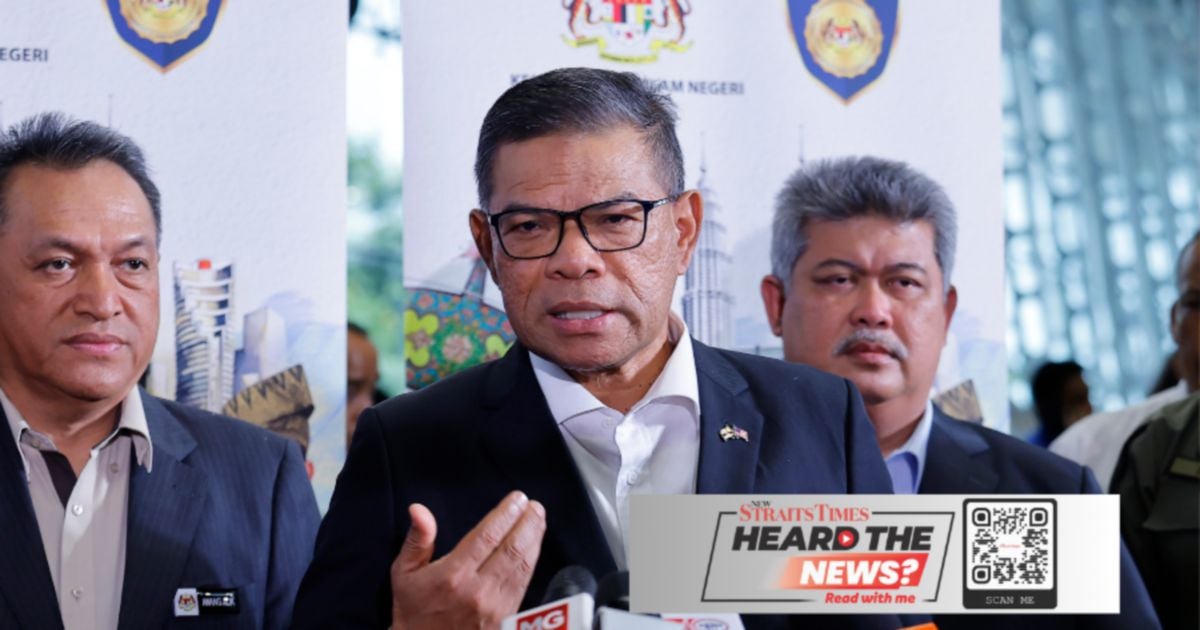SEPANG: The government will table a bill for a new law next year to facilitate border control at the Johor Baru-Singapore Rapid Transit System Link (RTS Link).
Home Minister Datuk Seri Saifuddin Nasution Ismail said new legislation was needed to allow for smooth operations after Malaysia and Singapore agreed for Bukit Chagar in Johor and Woodlands North in Singapore to serve as co-located Customs, Immigration and Quarantine stations for the RTS Link.
“By January 2027, the RTS Link will be fully operational. As for the amendment or tabling of this law, we only have a window in next February’s parliamentary sitting.
“If we don’t create a new law, we will have to amend 37 acts. Each act has sections that are related.
“So, the option we have is to draft a new law that takes into account all the requirements from these acts,” he said after the launch of the Malaysian Border Control and Protection Agency’s (MCBA) Benteng Persada patriotism initiative at the Kuala Lumpur International Airport here.
Saifuddin said with this approach, Malaysia’s immigration officers could be deployed on the Singaporean side of the border and vice versa.
The RTS Link, scheduled for completion in December 2026, is a 4km commuter rail network with two stations — Bukit Chagar and Woodlands North.
On another matter, Saifuddin said the MCBA had denied entry to 17,658 foreigners and seized contraband worth RM1.9 million at national entry points in the seven months to July.
He said 13,790 “Not To Land” notices were issued at KLIA.
“These results reflect the agency’s commitment to ensuring border security.”
He said with national entry points now placed under one chain of command, the administration had become more effective and streamlined.
“Integrated cargo inspections under the agency have eased procedures for industry players, particularly Customs processes.
“This has reduced the clearance time for consignments at entry points.”
Saifuddin said the MCBA would take over all 123 national entry points by next January.
On the Advanced Passenger Screening System (APSS), he said a dry run would be carried out this year, involving 10 out of the 56 airlines operating in Malaysia.
He said the system would allow access to traveller information before they arrive in the country.
“We have completed the procurement. The vendor has been appointed. A dry run is expected in September or October.”
He said the implementation is being monitored by the International Civil Aviation Organisation (ICAO).
“The ICAO has made several visits to Malaysia to ensure APSS compliance is on schedule.”
© New Straits Times Press (M) Bhd





